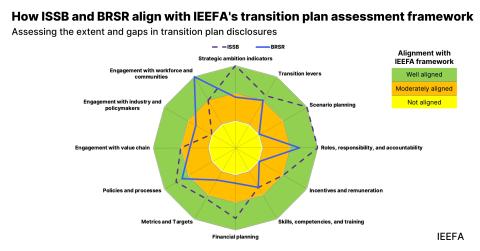PLN’s coal IPP funding gap suggests tariffs must rise in 2020
Download Full Report
View Press Release
Key Findings
The biggest funding challenge for PLN over the next four years is to find a way to pay for its planned increase in spending on new IPP capacity and the associated grid expansion needed to ensure that the new capacity can be dispatched.
Indonesia’s latest power sector plan, the 2018 RUPTL, includes aggressive steps toward reducing the financial impact of commitments to buying power from costly foreign independent power producers (IPPs) during the period leading up to the 2018 and 2019 elections.
Executive Summary
Global bond investors rely on a certain relentless logic when it comes to the debt of stateowned power companies.
An investment-grade rating rests on the view that the debt is effectively guaranteed by the government and backed by its willingness to raise revenue or tariffs, if necessary, to repay any debt. This view is stated plainly in Moody’s Investors Service’s supportive April 25 rating announcement concerning Perusahaan Listrik Negara (PLN), Indonesia’s state-controlled power company. Moody’s states that the Baa2 senior unsecured rating for a proposed US$5 billion global medium-term note program by PLN assumes that “…the longstanding and ongoing subsidies from the government ensure its financial viability and operational soundness.”
While this is conventional fixed-income market logic, nowhere in Moody’s press release does the ratings agency say how much PLN’s subsidies from the Indonesian government need to rise or when tariffs will go up for ratepayers to keep international bond investors and the rating’s agency happy. This matters because on March 12, Moody’s released a note commenting that the utility’s decision to freeze tariffs was a credit negative event, but that PLN’s investment-grade rating was still justified based on the assumption that its operating losses would continue to be offset by government subsidies.
This scenario may prove unsustainable, however, if the government is to keep its good standing with global investors. As a result, ratepayers likely will be expected to step up to relieve the pressure on the Indonesian government.
Please view full report PDF for references and sources.
Press release: IEEFA Indonesia: Coal-Centric State Utility Will Likely Raise Rates by 2020















